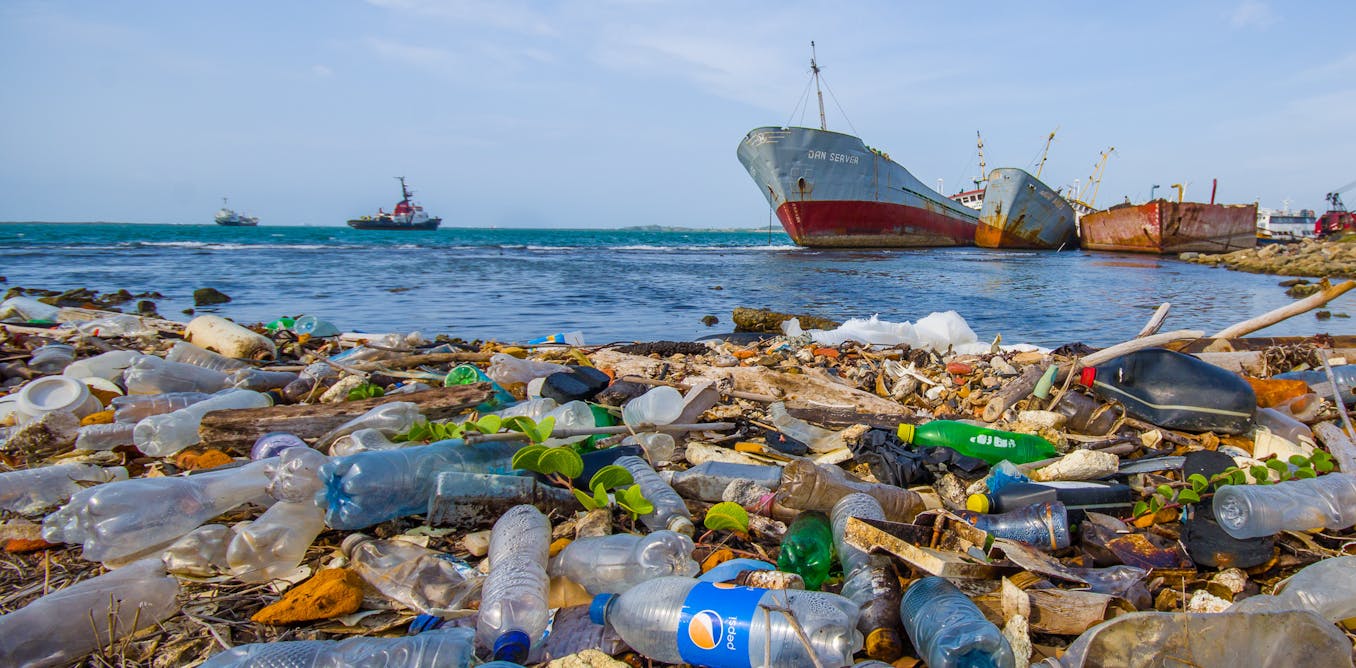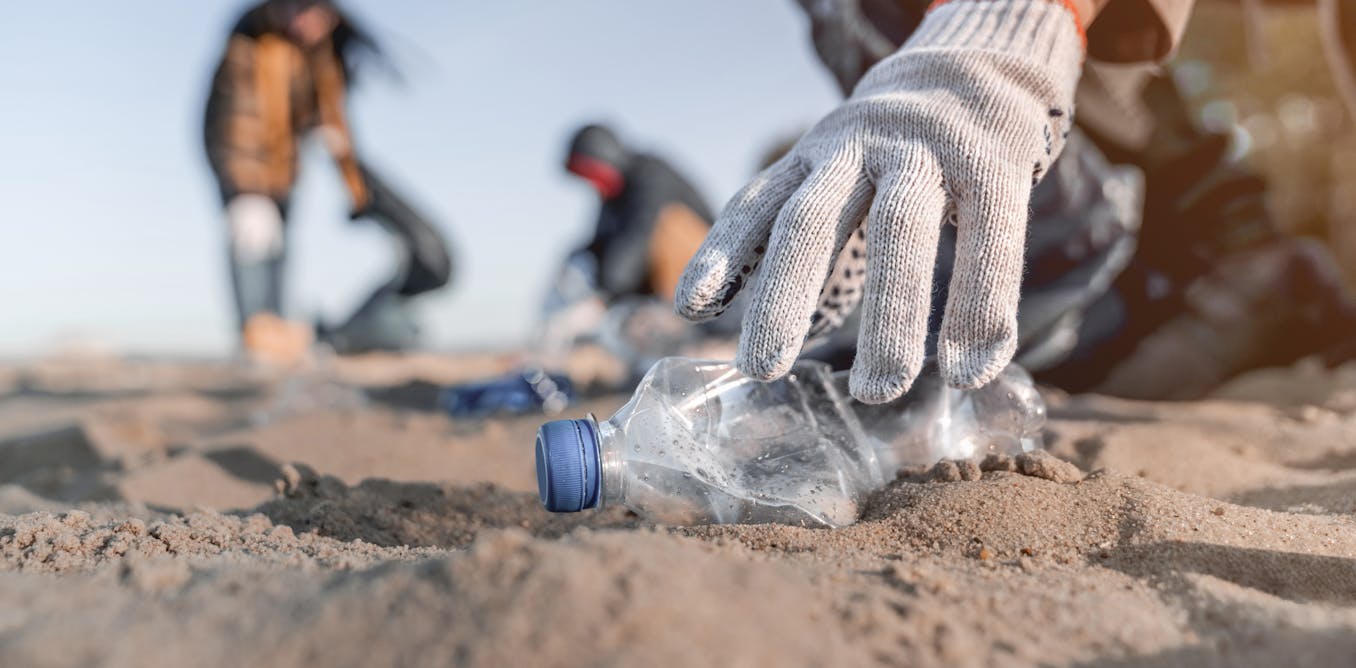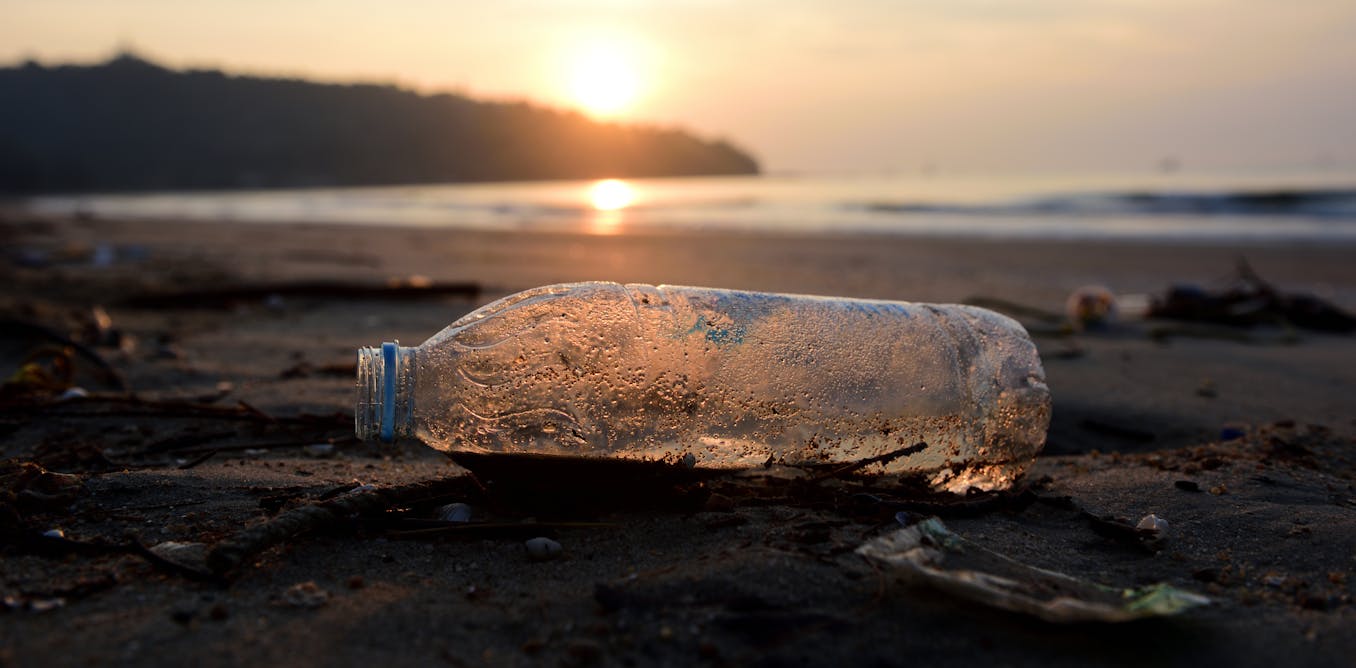
The ocean is swimming in plastic and it's getting worse – we need connected global policies now
What groups like the G20 can do to help fix the problem.
Sept. 17, 2020 • 5 min • Source
It seems you cannot go a day without reading about the impact of plastic in our oceans, and for good reason. The equivalent of a garbage truck of plastic waste enters the sea every minute , and this increases every day. If we do nothing, by 2040 the amount of plastic entering the ocean will triple from 13 million tonnes this year, to 29 million tonnes in 2040. That is 50kg of waste plastic entering the ocean for every metre of coastline.
Add to that almost all the plastic that has entered the ocean is still there since it takes centuries to break down . It is either buried or broken down into smaller pieces and potentially passes up the food chain creating further problems.
Despite this, plastic has also been a saviour. During the COVID-19 pandemic plastic used in face masks , testing kits , screens and to protecting food has enabled countries to come out of lockdown during and support social distancing. We still need to use these items until sustainable and “COVID safe” alternatives are available. But we also need to look to the future to reduce our dependence on plastic and its impact on the environment. With plastic in the ocean being a global problem, we need global agreements and policies to reverse the plastic tide.
Read more: Rubbish is piling up and recycling has stalled – waste systems must adapt
Ambitious policies are needed
Environment ministers of the G20 group of the world’s most economically powerful countries and regions met on September 16 to discuss their immediate challenges, with marine plastic pollution a top priority. A key item for discussion was “ safeguarding the planet by fostering collective efforts to protect our global commons ”. This means working out how we can continue to use the planet’s resources sustainably without harming the environment.
A global analysis of plastics policies over the past two decades found that typical reactions to marine plastic litter were bans or taxes on individual or groups of plastic items within single countries. So far, 43 countries have introduced a ban, tax or levy on plastic bags. Other plastic packaging or single-use plastic products were banned in at least 25 countries, representing a population of almost 2 billion people in 2018.
But plastic waste doesn’t respect land or ocean borders, with mismanaged plastic waste easily migrating from country to country when leaked into the environment. Policies also need to consider the entire plastics life cycle to stand a chance of being effective. For example, the inclusion of easier to recycle plastics in consumer products sounds positive, but their actual recycling rate depends on effective sorting and collection of plastic waste, and appropriate infrastructure being in place.
Read more: What happens to the plastic you recycle? Researchers lift the lid
Ultimately, a joined up but adaptable set of rules and guidelines are needed so all plastic producers and users can prevent its leakage across all stages of the plastics life cycle.
The G20 has sought to lead action on marine plastic litter through a 2017 Action Plan on Marine Litter which set out areas of concern and possible policy interventions, and through connections to initiatives such as the UN Environment Programme’s Global Partnership on Marine Litter and most recently the Osaka Blue Ocean Vision . The Osaka vision was agreed under the Japanese G20 presidency in 2019 and commits countries to “reduce additional pollution by marine plastic litter to zero by 2050”. Although an agreement led by the G20, it now has the support of 86 countries.
But even with these agreements in place, plastic entering the ocean will still only reduce by 7% by 2040. We need ambitious new agreements as current and emerging policies do not meet the scale of the challenge.
A consensus is forming that the G20 and other global leaders must focus on a systemic change of the plastics economy. This includes focusing on “designing out” plastics, promoting technical and business innovation, immediately scaling up actions known to reduce marine plastic litter, and transitioning to a circular economy in which materials are fully recovered and reused. These actions have the potential to contribute to the G20’s vision of net-zero plastics entering the ocean by 2050, but only if ambitious actions are taken now.
Steve Fletcher is a member of the UN International Resource Panel.
Keiron Philip Roberts has received funding from the Japanese Government to undertake research for the UN International Resource Panel on applying the Osaka Blue Ocean Vision.


